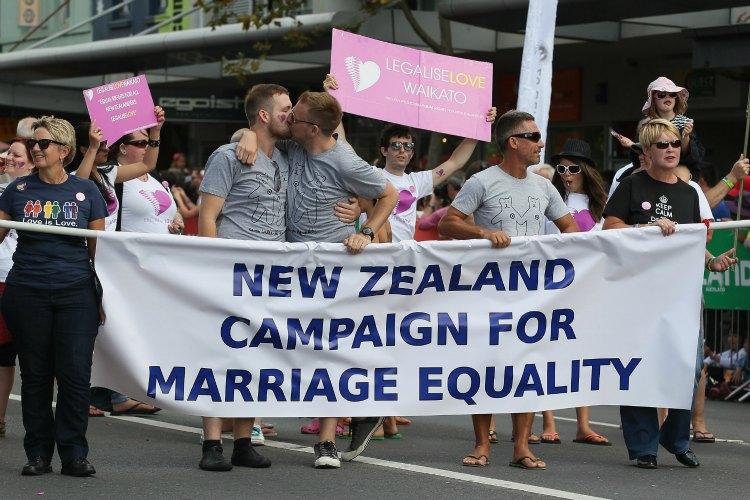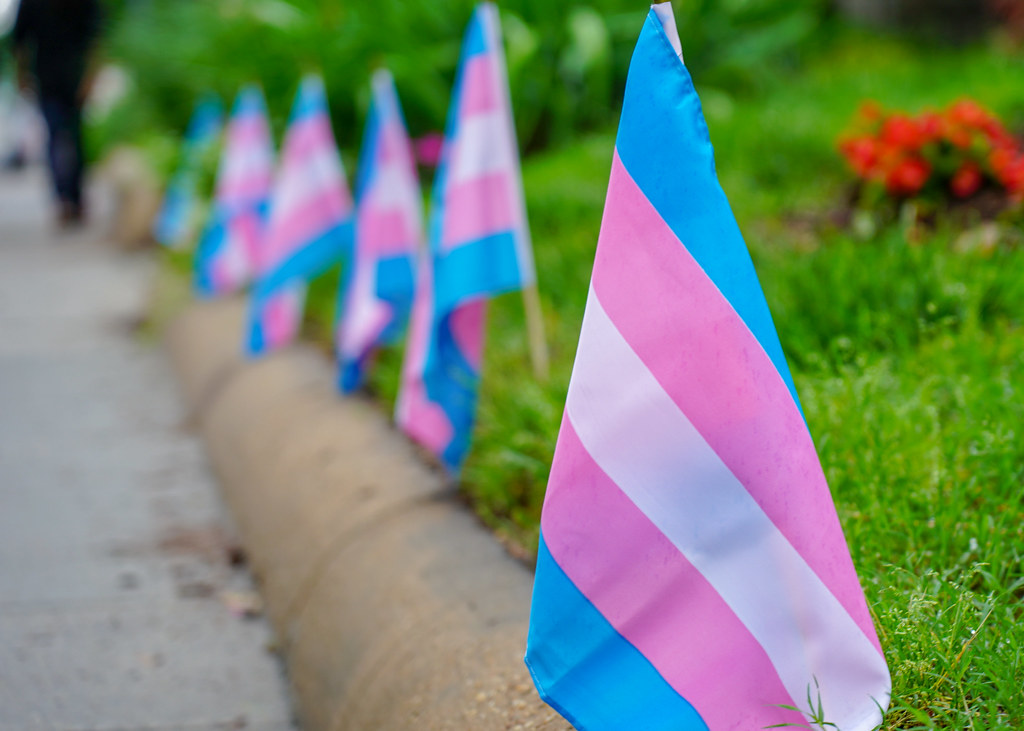We won. 77 – 44. The ayes have it. It feels wonderful.
I’d shed a few tears even before the final vote came through. It was not the quality of the speeches in Parliament, necessarily, although some of them were brilliant, Kevin Hague’s especially. But the sense of living through history was what felt so moving, and will be leading to celebrations all around the country tonight. This is a victory. And it is the culmination of one phase in the struggle stretching all the way back to Homosexual Law Reform.
Marriage equality. It’s a basic, democratic demand. People should have the right to marry, or not to marry, as they wish. The law now fits the feeling of the majority more closely, and it secures another democratic right. As Lynda Topp put it, in a statement on her own marriage to her partner Donna, “”everybody should be able to stand up and say ‘I’m getting married’.” “A Civil Union is demeaning” Lynda argued, “this idea that you will never be good enough, that your love is somehow less than or not as worthy.”
Tonight makes it harder to say “you will never be good enough.” Lesbian, gay, bisexual, transgender, intersex, queer: in unity is strength. The old trade union slogan fits. The happier we feel inside our own skin, and the more confident we are of our place and our rights in our community, the more likely we are to be able to give solidarity and support to others. Shame and fear isolate, weaken, and sometimes kill. Anna Caro’s beautiful essay on surviving and growing up queer in Thatcher’s Britain reminds us what direct, and damaging, consequences political bigotry can have on everyday lives. Marriage equality is another way working-class LGBTI people have asserted their right to visibility.
This was a victory for decency, for family values, for whanau, for pride and civility, for all those words the bigots and the homophobes have tried to claim for their own. It was another step, a small one, towards full equality.
Of course tomorrow there will be further battles, more important ones even. Suicide rates amongst queer youth remain a national disgrace. Trans people continue to suffer routine indignity in the health system and everyday life. Bullying and homophobic violence are a normal part of high school culture. But this victory makes it easier to fight for sexual liberation more broadly. It arms us to take up other battles against oppression. Victories give people confidence, energy, courage. Defeats turn us in on ourselves.
Some on the left saw this battle as too conservative, too straight-laced, a distraction compared to more important issues we should be prioritising. But this is to misunderstand how we can change mass consciousness. The fact that equal marriage rights are now legal can act as a spur to further activism; one something becomes normalised it’s only natural to feel like you can reach for more.
This is what Aotearoa looks like now: Lynda Topp and her bride Donna Luxton on the cover of Woman’s Day. It’s the first ever front page featuring a same-sex couple, and it will be seen by many people feeling isolated and alone. Lynda’s given years of music and solidarity to left-wing and progressive causes, from the feminist movement to the anti-nuclear cause to the fight against apartheid. Here she’s offering her personal happiness as an example for others to find pride. Many unions now have Queer caucuses. School’s Out recognises diversity in education. The more we win, from the trivial to the life-changing, the more we can look to win.
Equal marriage rights matter for what they signify, much more perhaps than the specific rights they bring. They show that, in a contest of ideas, the homophobes lost. A public debate about the status of LGBTI people – their right to be considered fully human, with dignity and needs and desires – went on in the media for many months, and thousands of queer youth will have seen the forces of bigotry losing. Losing the argument, losing the battle, and seeing themselves losing their power to bully and berate. That’s bound to give confidence for further fights to come.
We pay tribute tonight to all the courageous people who have done so much for sexual liberation in this decades’ long campaign. The men and women who still bear scars, physical and emotional, from the beatings they received during Homosexual Law Reform. The veterans of Gay Liberation from the 1970s. Ngahuia Te Awekotuku, the founder of the Gay Liberation Front, at one time denied a Visa to the US on account of her ‘deviance,’ now a respected intellectual, scholar, and writer. Trailblazers like John Jolliff and Des Smith, long-term companions and lovers, and the first couple to take a civil union under the old law. Alison Laurie, the lesbian theorist and activist. The Queer Avengers, a new generation of activists bringing radical energy to the movement. Bill Logan, a political opponent of our organisation in so many other respects, and a courageous and outspoken advocate for gay men in Wellington for over thirty years. I remember also my teacher, the late Judith Dale, a vocal, warm and generous women’s liberationist and lesbian writer. I wish she were alive to share this event.
Victory is sweet. Thousands of people are celebrating it now, and feeling all the stronger for this.
The International Socialist Organisation supported the campaign for equal marriage rights from the very beginning and, in a very modest way, we have done what we can, along with hundreds of other groups and individuals, to win this battle. We are proud of this. We will be all the prouder joining in the struggles to come.
Working-class LGBTI people still have a world to win.









